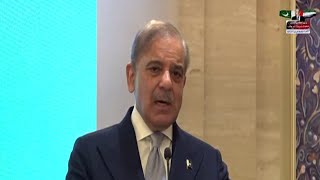 British inventor James Dyson has dropped out of the race to produce electric cars in the face of stiff competition and after criticism of the Brexit-backing billionaire's decision to build the vehicle in Singapore.
British inventor James Dyson has dropped out of the race to produce electric cars in the face of stiff competition and after criticism of the Brexit-backing billionaire's decision to build the vehicle in Singapore.
Dyson, known for his bagless vacuum cleaners and bladeless fans, announced two years ago that he was investing two billion pounds ($2.5 billion) in developing an electric car, and the first vehicles were expected in 2021.
The ambitious project catapulted the 72-year-old entrepreneur into competition against more established players such as US firm Tesla, founded by business magnate Elon Musk, and carmakers from the US to China.
Adding to his difficulties, the plan ran into controversy when the company revealed that its first car plant would be in Singapore and its global headquarters were shifting to the affluent city-state.
Dyson insisted it was to be closer to booming Asian markets - but there was fury that the tycoon was not investing more in UK manufacturing after vocally supporting Britain's exit from the European Union.
There had however been little indication that Dyson was having second thoughts about the high-profile project, which hundreds of employees were already working on, until an announcement late Thursday of the abrupt U-turn.
Dyson said in a statement that his team had developed a "fantastic car" based on an "ingenious" approach but added: "Though we have tried very hard throughout the development process, we simply cannot make it commercially viable."
"We have been through a serious process to find a buyer for the project which has, unfortunately, been unsuccessful so far," he said.
There are 523 people in the automotive team, the majority in Britain and 22 in Singapore, a spokesman said. Dyson said "as many of the team as possible" would be reassigned to other roles in the company. Singapore government agency the Economic Development Board predicted the decision to ditch the project would have a minimal disruption on Dyson's operations in the Asian trading hub, as it was at an early stage.
In May, Dyson unveiled brief details of patents filed for the electric car and said it would be more energy-efficient than rivals - and with "very large wheels" for city and rough-terrain driving.
But analysts were sceptical about the plan and not surprised about the change of heart.
"From the first instance it was always difficult to understand why Dyson thought that it would have any sort of competitive advantage in actually embarking on this project," Walter Theseira, a transport economist at Singapore University of Social Sciences, told AFP.
"Given the global competitive landscape, you're adding a new manufacturer which is untested in the car industry."
Nitin Pangarkar, from National University of Singapore's Business School, added the car industry was becoming "less attractive" as cities create better public transport networks and consumers change behaviour through steps such as sharing rides.
"Dyson's resources... are probably better spent elsewhere, in products similar to its current businesses," he added.
Electric vehicles are increasing in popularity as governments worldwide seek to phase out polluting petrol and diesel cars, but producing them profitably is a challenge even for leading manufacturers.






















Comments
Comments are closed.